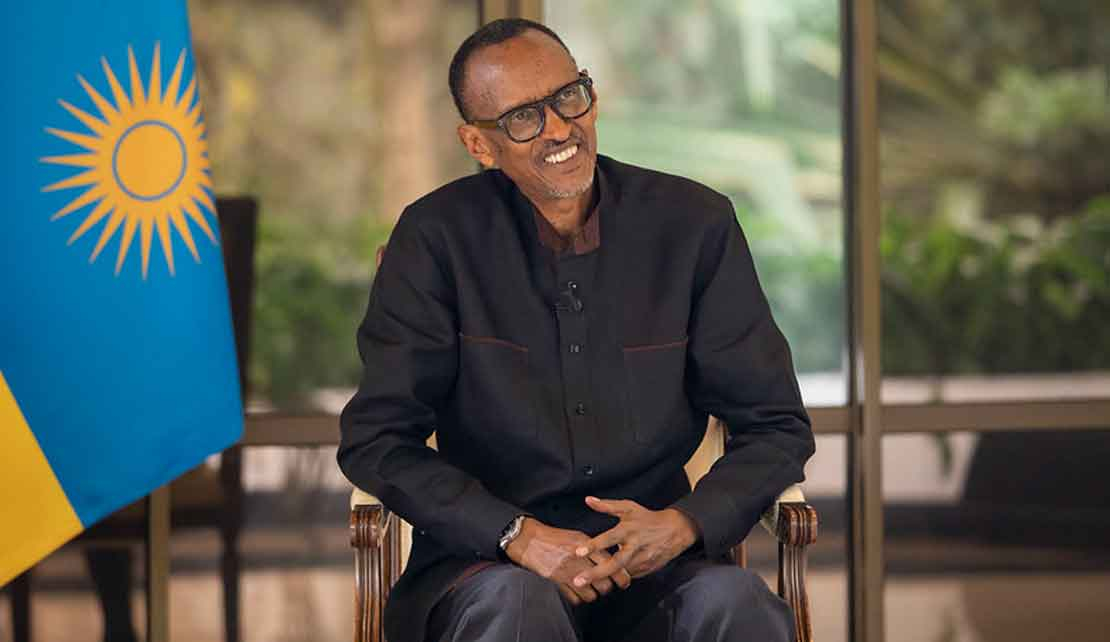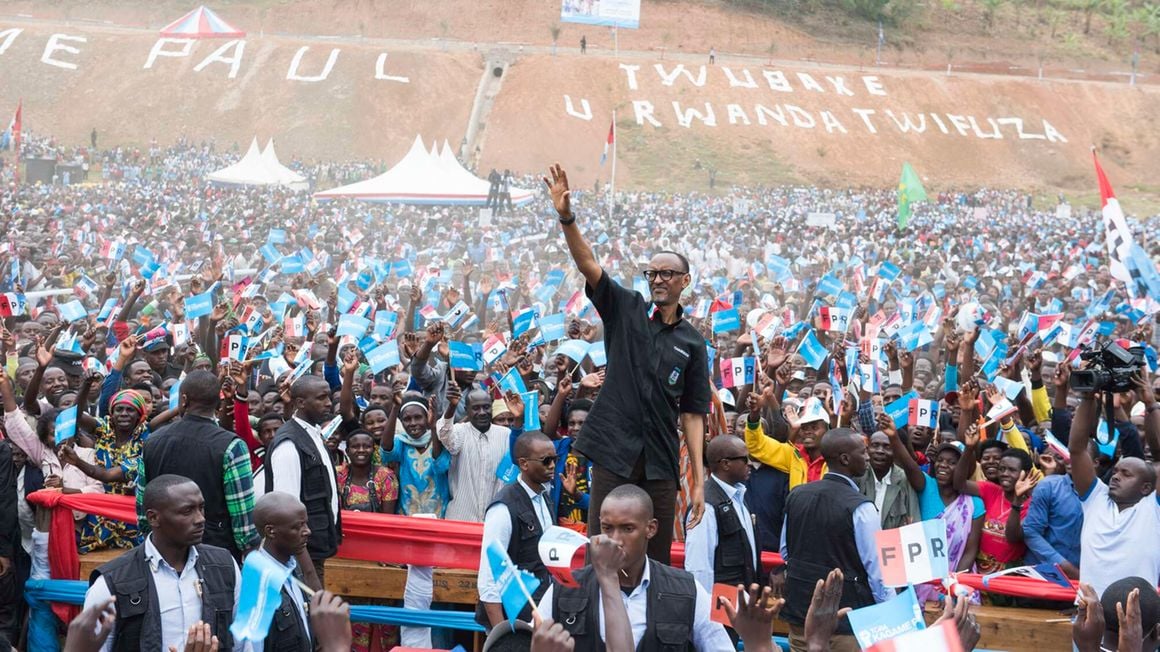Rwandan President Paul Kagame goes for a fourth term, Flays West’s double standards on democracy

On July 15, 2024, Rwandans will to go to the polls to elect a new president. Among their choices will be incumbent President Paul Kagame who has been President of Rwanda since 2000.
President Kagame will be running for a fourth term as President of Rwanda, which has fuelled concerns about the future of democracy in Rwanda.
Kagame, who won the last election with 98.8 percent to earn seven years in office, is eligible for another 10 years under the constitution, which will see him serve for 40 years as president if elected.
When asked by Jeune Afrique magazine what he thought the West would think of him running again, he replied, “I’m sorry for the West, but what the West thinks is not my problem.”
“People are supposed to be independent and should be allowed to organise themselves as they wish,” President Kagame added.
On Monday he accused Western countries of adopting “double standards” on democracy, ahead of next month’s general elections in the country.
“Democracy is about freedom of choice. If that is the case unless the definition has changed over time, I have never known of any place where democracy has succeeded when principles and ideals have been dictated from the outside,” Mr Kagame said, speaking in an interview on national television.
“They say you have been there too long, but that is none of their business ... Rwandans are the ones to make those choices. They have the freedom to do it. But you find that in most cases, the complaints are from outside. These are double standards; it’s even arrogance,” he said.
President Kagame’s comments came days after the country’s National Electoral Commission cleared him and two other candidates to run in the presidential election next month.

Kagame pointed out that the political context of every country matters in politics, adding that lines of thinking are going to be different from one place to another, wondering whether the democracy being practised in Rwanda is the opposite of the description of democracy.
“Some of these countries have strict rules, and they don’t want anybody to interfere in their politics, but they find it easy to get involved in other people’s politics. What sense does it make?”
”If interfering in other people’s affairs is wrong, what gives you the right to go and get involved in other people’s affairs ... Some of them are leaders of their own countries in spite of their very low ratings. But that is democracy I’m told,” he added.
"I am happy with the confidence that the Rwandans have shown in me. I will always serve them, as much when I can," Kagame told Jeune Afrique magazine in an interview published on Tuesday.
The Rwandan President elected in 2000 is now Rwanda’s longest-serving president after his predecessor, Juvenal Habyarimana, who reigned for 21 years from 1973 until his assassination in April 1994.
President Kagame is credited with overseeing Rwanda's economic and social transformation since the 1994 Genocide Against the Tutsi. But he has also been criticised for his perceived authoritarian rule and suppression of dissent.
If he gets re-elected on July 15 — as is widely expected — Kagame will cement his position as East Africa’s second longest-serving leader after Yoweri Museveni of Uganda, who has been in power since 1986.
The president is finishing his last seven-year term and is expected to rule the country until 2034, when his new two five-year terms end.
Article 101 of the revised constitution says the term of office of the president is five years. He or she may be re-elected once.
However, article 172 (1) says: " The President of the Republic in office at the time of this constitution comes into force continues to serve seven years for which he was elected.”
Article 172 (2) says “the provisions of Article 101 of this Constitution take effect after a seven-year term of office of the President of the Republic referred to in Paragraph 1 of this article.”
“It's no surprise that Kagame is running for a fourth presidential term. He remains popular with the majority of Rwandans, who credit him with the country's rebuilding after the 1994 Genocide Against the Tutsi.
At a time of regional volatility, many Rwandans want him to stay for the sake of continuity and stability,” said Prof Phil Clark, professor of international politics at SOAS University of London.
“But the major questions may come from within the (ruling) Rwanda Patriotic Front. Are there frustrated senior members of the party who believe it's their turn at the presidency? Is it time for fresh thinking at the top?
President Kagame himself has spoken about the need to bring younger RPF members into the fold, to keep the party modern and agile. These internal questions may re-emerge in light of Kagame running again in 2024.”
Source: The East African, News Agencies,
-30-
